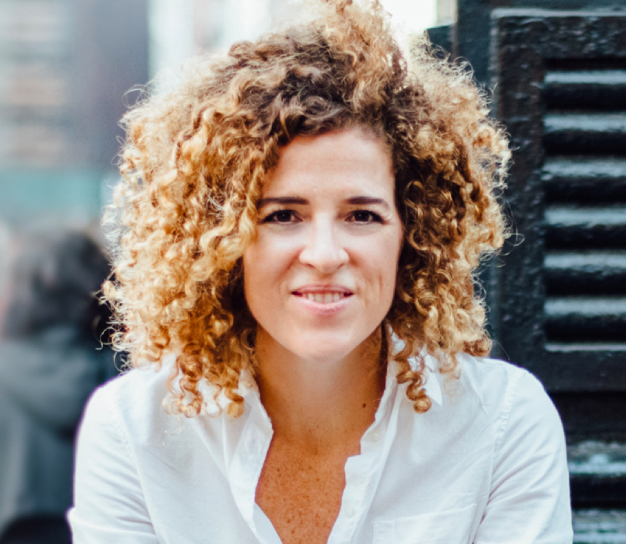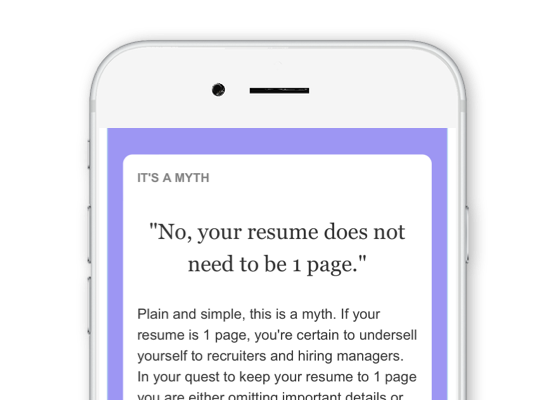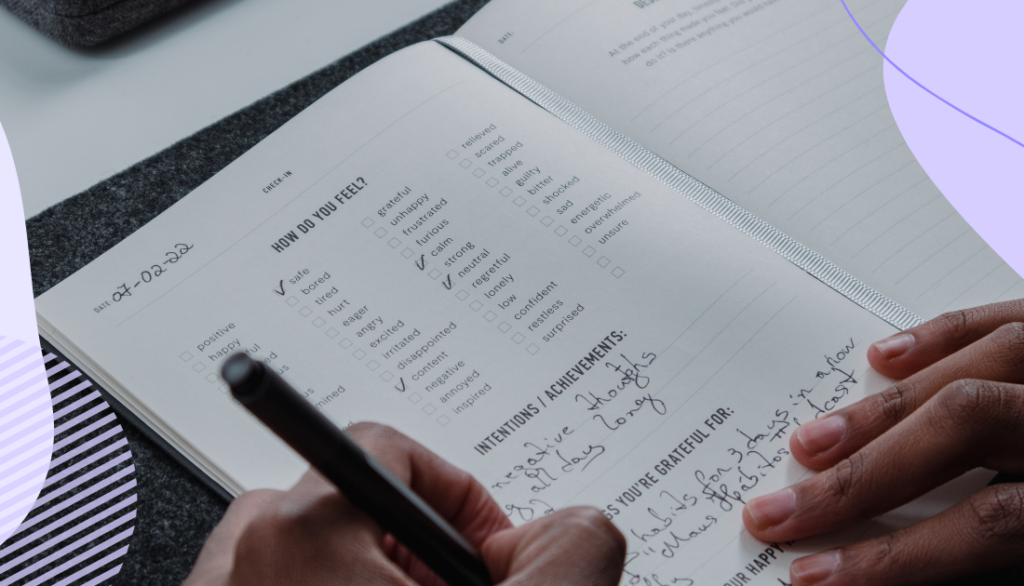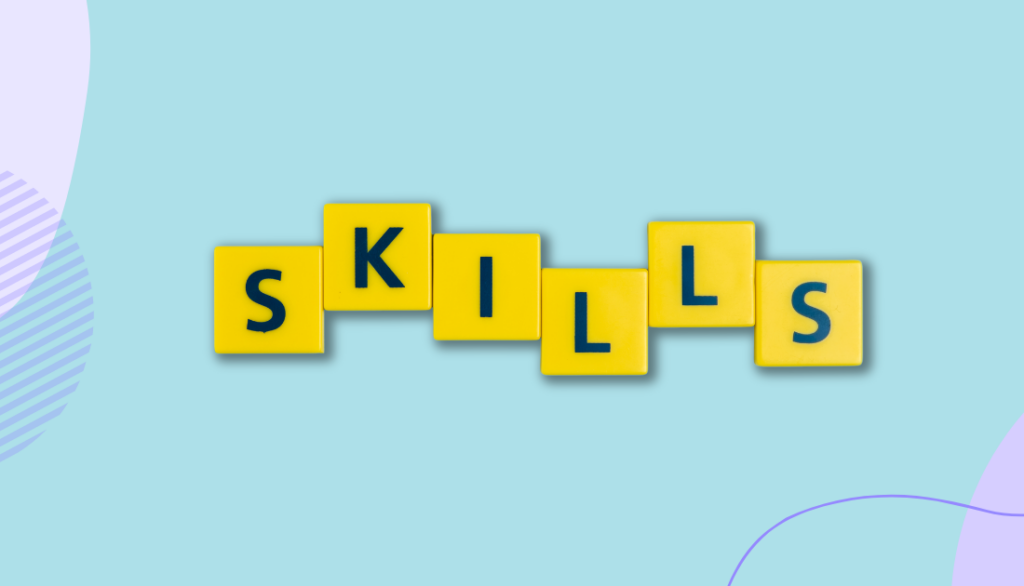Episode 116
How to make it past the second job interview
8 min listen
Episode 6
8 min listen

Listen to the Episode
Episode Summary
Struggling to make it past the second job interview? Look no further! In this episode, we dive into why you might be getting stuck in the hiring process and how to overcome it. With valuable insights and practical advice, we explore the importance of aligning what you talk about in your job interview with your resume, showcasing your skills through storytelling, and utilizing case studies to provide evidence of your abilities.
Discover the significance of verbal delivery, confidence, and body language in creating a positive impression during interviews. Plus, learn the art of asking thoughtful questions to demonstrate your interest and preparedness to hiring managers and your future colleagues.
This episode unveils a job search checkpoint methodology that has helped numerous professionals secure top positions without the need for excessive applications. So, if you’re ready to level up your interview game, finally get past the second interview, and increase your chances of getting hired, join us for this informative and actionable discussion.
Create your dream career, and life
- Learn how to advance your UX career in our UX Career Roadmap
- Watch our free masterclass about the 4C framework to stand out in your UX job search
- Find out what’s included in our UX Job Search Accelerator Syllabus
Watch
Discussion Questions About The Episode
- Reflecting on your own job search experience, do you find yourself applying to a large number of jobs without much success in getting interviews or job offers? How might adopting the job search checkpoint methodology discussed in the episode help you in your search?
- Consider your performance in job interviews. How well do you align the content of your answers with the skills and experiences highlighted in your resume? Do you have compelling examples and stories to share with interviewers that demonstrate your expertise?
- Reflect on your verbal delivery and body language during interviews. How confident and engaging are you when speaking about your skills and experiences? Are there any areas for improvement that you identified, such as speaking softly, giving long-winded answers, or using excessive filler words?
- Think about the types of questions you ask during interviews. Have you been actively seeking information about the position, company, or team? How might asking thoughtful, prepared questions help you stand out and demonstrate your interest in the role and organization?
- Take a moment to celebrate the fact that you're getting interviews. Despite not receiving offers, recognize that you've made it further than a large percentage of other applicants. How can you reframe rejection as an opportunity for growth and learning? And are there any adjustments you might need to make in terms of the types of jobs you're applying to or your job search strategy?
Episode Transcript
Sarah Doody [00:00:00]: Why am I not getting past this 2nd interview? If you’ve been on job interviews and have felt really good about them, but then didn’t get the offer, then this is for you. I’m Sarah Doody, founder and CEO of Career Strategy Lab, the career incubator for UX product and tech professionals who are determined to grow their careers in the field of UX and product development. Today, I’m gonna give you some specific things to consider if you aren’t making it past the 2nd interview. You. So if you’re in this situation right now, you are definitely in the right place. Before we dive into this, I wanna share some quick data that’s really relevant. In 2021, Pew Research Center did a study with 715 US adults and found that 1 third said they felt more stress than usual, and 56% said they experienced more emotional or mental health issues while unemployed. So if you’re feeling stressed or anxious about your job search, I want you to know you are not broken and you are not alone.
Sarah Doody [00:01:16]: And it doesn’t have to be as hard as maybe it’s been so far. The first thing you need to understand is that a directionless job search where you simply play the numbers game, sets you up for rejection and self sabotage. Think about it. The more jobs you apply to, the more likely you’ll not get interviews or offers. It’s just math. So if you’re thinking about applying to more jobs, listen to this whole episode and then decide if it’s a good idea to keep applying to more jobs. So today, I wanted to share something I created. My job search checkpoint methodology.
Sarah Doody [00:01:58]: It’s helped countless clients of mine get hired at top companies without applying to hundreds of jobs. So I want you to imagine your job search has 4 steps just for the sake of simplicity and discussion. Step number 1 is applying to jobs. Step 2 is the initial screening calls or interviews. Step 3 is a series of more interviews, more in-depth, and 4 is actually getting hired. And in between those 3 steps, there are 3 checkpoints. One, applying to jobs and not getting interviews. 2, not proceeding past the initial screenings.
Sarah Doody [00:02:42]: And 3, not getting job offers after interviews. Today, we’ll focus on checkpoints 23. Before we get to figuring out why you aren’t getting past this screener or the 2nd job interview, I wanna share bit more about the types of people we work with in Career Strategy Lab. So you can explore which one feels like it matches where you’re at in your career right now. So there are 3 types of people who come through Career Strategy Lab. Switchers, climbers, and launchers. 1st, let’s talk about those switchers who, you guessed it, are switching their careers. They are teachers, health care professionals, architects, people coming from academia, etcetera.
Sarah Doody [00:03:32]: The next type of person we support NCSL are career climbers. They’ve been working in UX for a while, 5, 10, 15, some people 20 years, and they’re ready to move up the career ladder. And the 3rd type of person we support in CSL are called launchers. Launchers are brand new to the world of UX and are typically coming straight out of an education program like a college, university, or boot camp. Okay. So back to that question. Why am I not making it past the screener or 2nd job interview? First of all, if you’re going to job interviews but not getting offers, I want you to consider some good news. Right? Something about your resume and LinkedIn profile is creating a strong enough first impression to get you an interview.
Sarah Doody [00:04:25]: However, While your resume gets you in the door, your interview is what often helps get you hired. As you contemplate your performance in interviews, consider both what you talk about, the content, and how you talk about it, your actual verbal delivery. When it comes to the content, ask yourself if what you talk about in interviews aligns with your resume. When you’re asked a question, do you talk through examples of skills and experience in action? Can you tell stories about what you’ve worked on and have conversations about them. It can be really helpful to have examples of work or a case study presentation to highlight during your interviews. So you cannot just tell people, but show them what you’ve done. Writing an effective case study is really all about harnessing the power of storytelling to communicate the full context of what you’ve worked on. You see, your case study should serve as evidence of your skills and experience.
Sarah Doody [00:05:35]: Consider it like evidence in a legal case. And in this situation, The people in the interviews are the jurors. It’s important to examine how you speak, your confidence, and your body language in interviews. All of these things contribute to the overall impression that people form about you. And one of the best things you can do is record yourself doing a mock interview. I know it might feel uncomfortable, but here’s what you need to do. Try using Google’s interview warm up tool or a screen recording tool like Loom. You you can find that at loom.com.
Sarah Doody [00:06:18]: Though it might seem awkward, simply listening to yourself, answering questions can help you quickly identify things to improve on. For example, maybe you realize you speak really softly or you say a lot or you give really long winded answers. It’s completely natural to be frustrated if you go through multiple interviews and don’t get an offer. However, there is still reason to celebrate. You’re one of the tiny percent of applicants who got that far. Of course, it’s a total punch in the gut when you receive that email informing you that a company has decided to go with other candidates. But the most important thing to keep in mind here is that it’s not always a reflection of your skills and your experience. Oftentimes, it’s simply a situation where other candidates ticked more of the boxes than you did.
Sarah Doody [00:07:19]: So take time to think about the types of jobs you’re applying to. Do you have experience in another industry or niche that perhaps you need to expand your job search to? And my last tip is that to stand out, it can be helpful to ask thoughtful questions about the position or company during your interviews. Failing to ask questions can give hiring managers the impression that you’re not very interested in the role or the company. And interviews are your chance to interview them as much as they are interviewing you. So spend 15 minutes before your next interview preparing some questions you could ask about the team, product, or even the company culture. This will help you come across as a more prepared, thoughtful, and mature candidate. Okay. I know that was a lot, and I hope you have a ton of actionable notes.
Sarah Doody [00:08:15]: So to recap, if you aren’t making it past the screeners or 2nd interviews, here are the things you should do. Number 1, celebrate the fact that you are getting interviews. This is an indicator that your resume is working. 2, contemplate your performance in interviews and the content you talk about. Three, consider creating a case study presentation or portfolio to use during interviews to help you not just talk about your work, but also show your work. 4, examine your verbal communication and body language. 5, be prepared with questions to ask at your next interview. Okay.
Sarah Doody [00:09:05]: That’s all for today. I am Sarah Doody, founder and CEO of Career Strategy Lab, and this has been a deep dive into my job search checkpoint methodology to help you troubleshoot your job search and understand why you may not be making it past those screeners or second interviews. If this content has been helpful, please consider leaving a review, clicking the like button, or sharing it with someone that you think could benefit from the topic today. You’re always welcome to learn more about Career Strategy Lab by visiting careerstrategylab.com, or if you wanna learn more about the job search, interviews, resumes, visit my YouTube at SarahDoody. Head on over to my Twitter, you’ll find that at SarahDoody. My Instagram is at SarahDoodyUX, and you can Search me on LinkedIn by my name, Sarah Doody. Have a lovely day, and I will talk to you next time.













